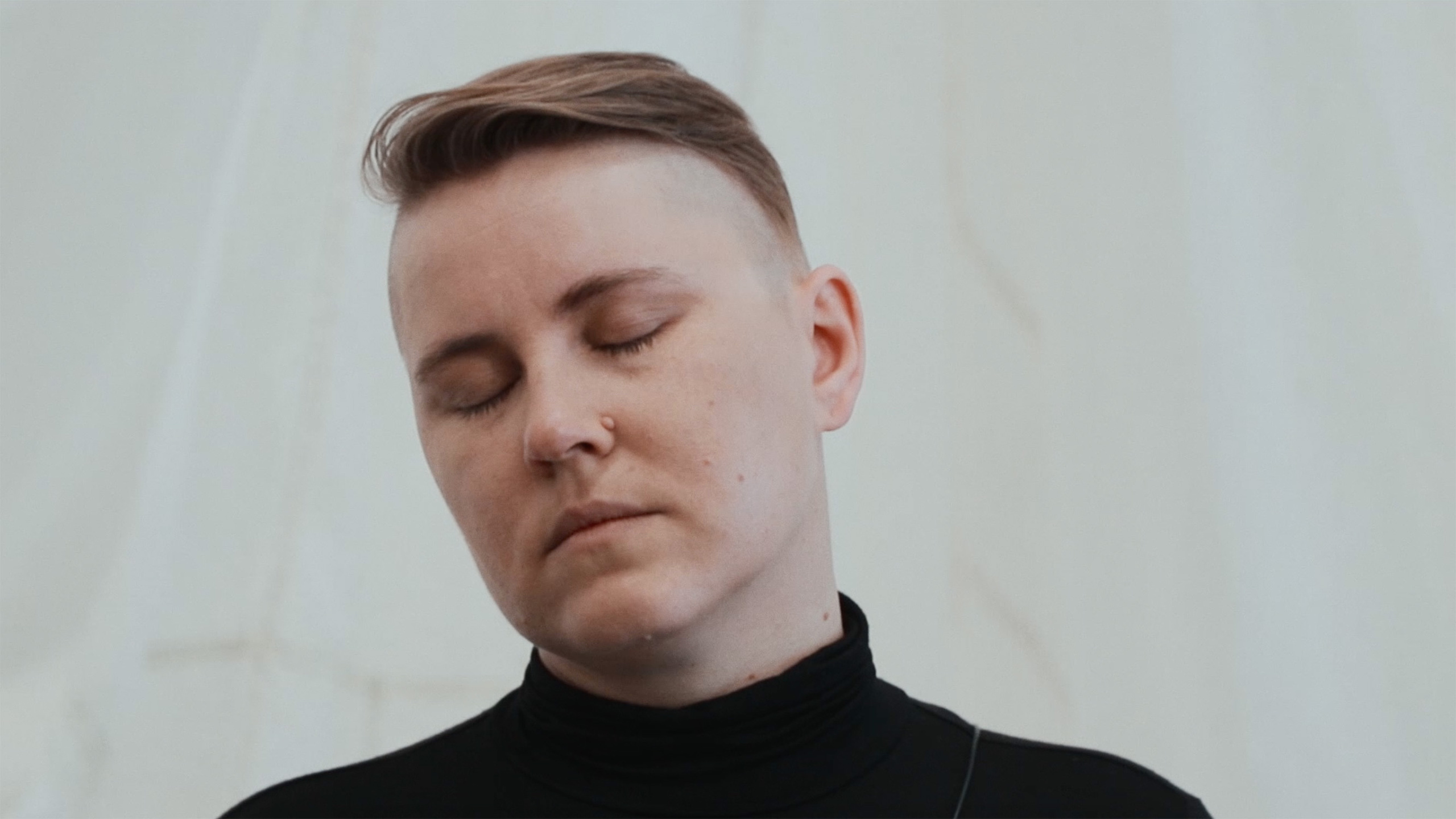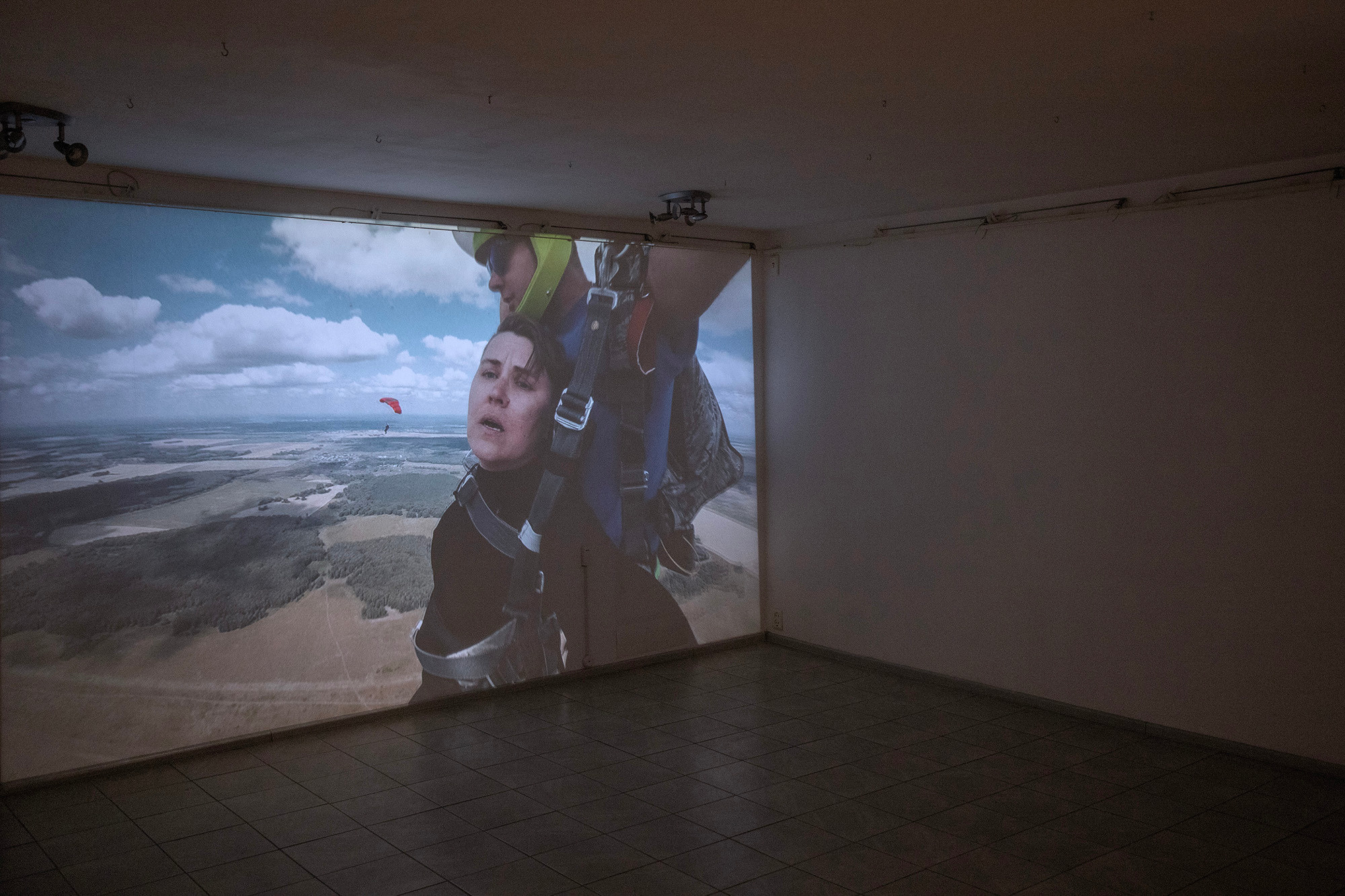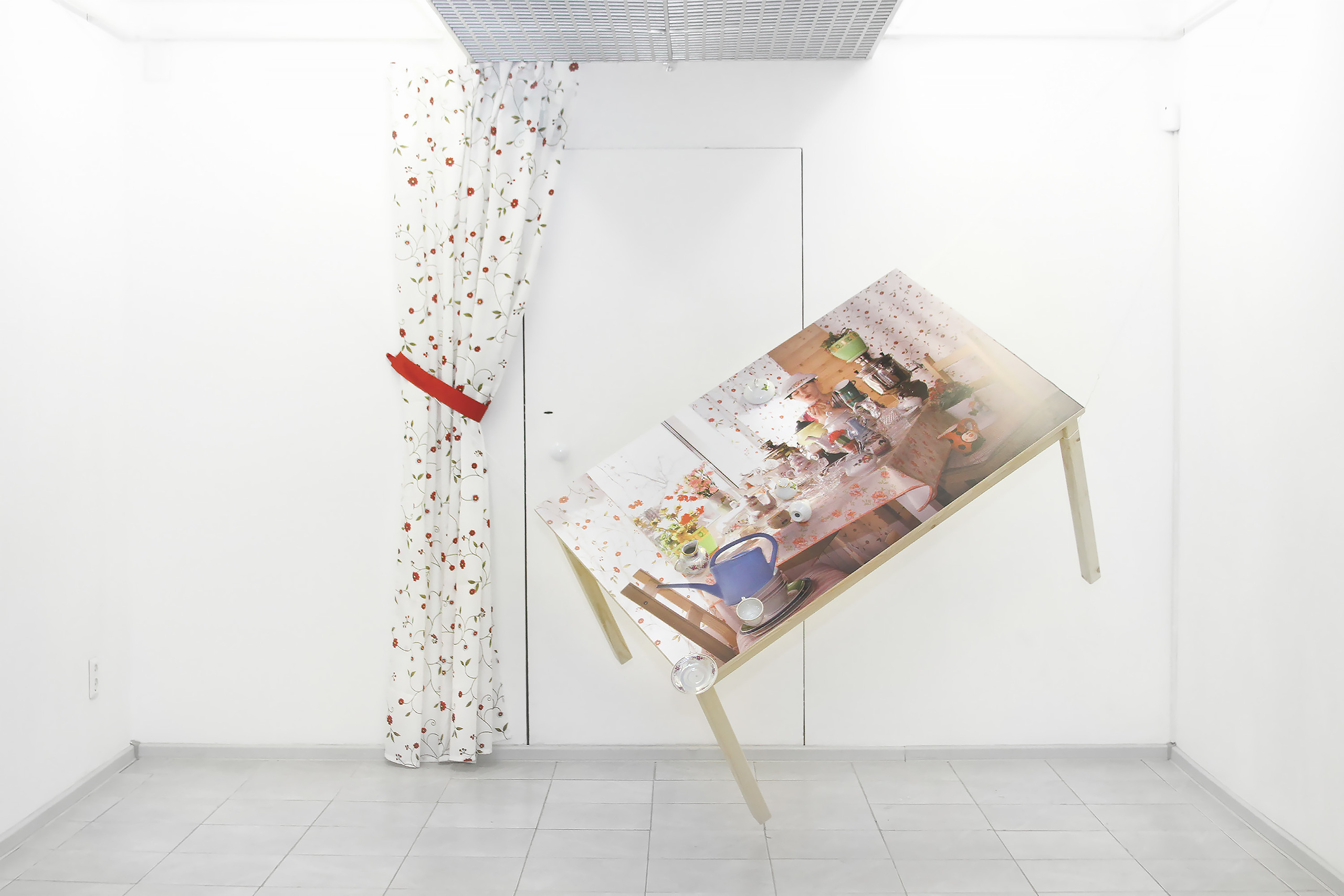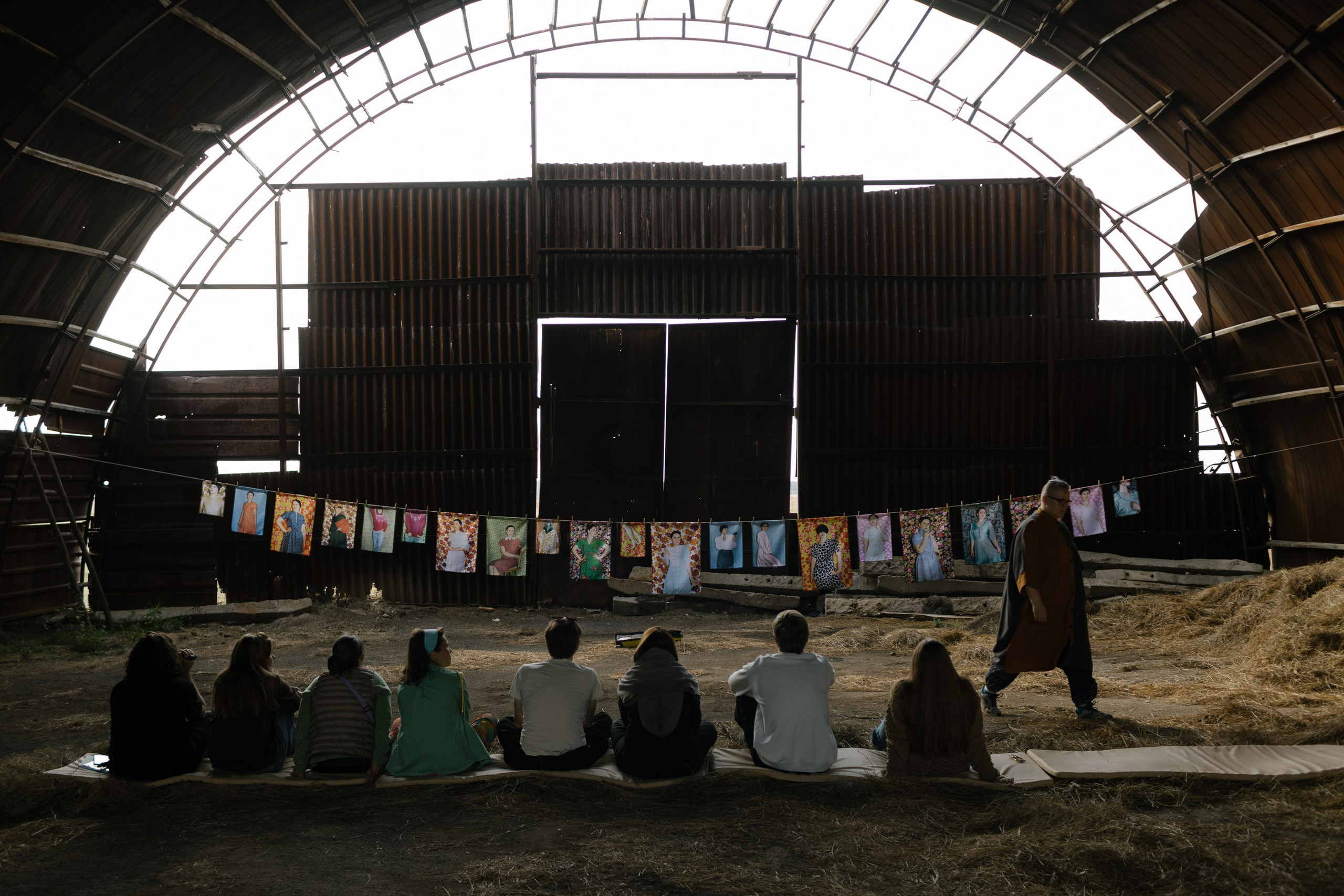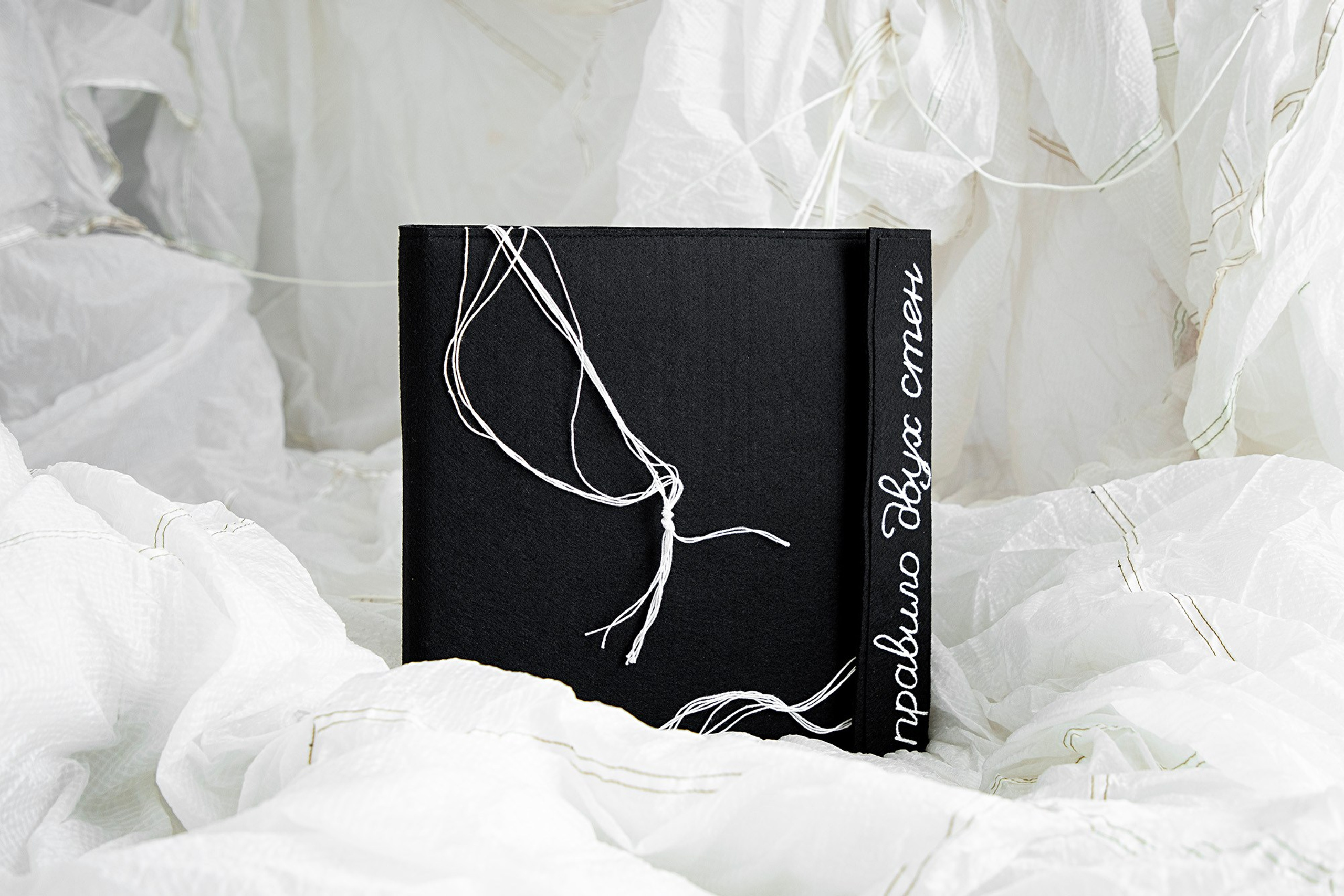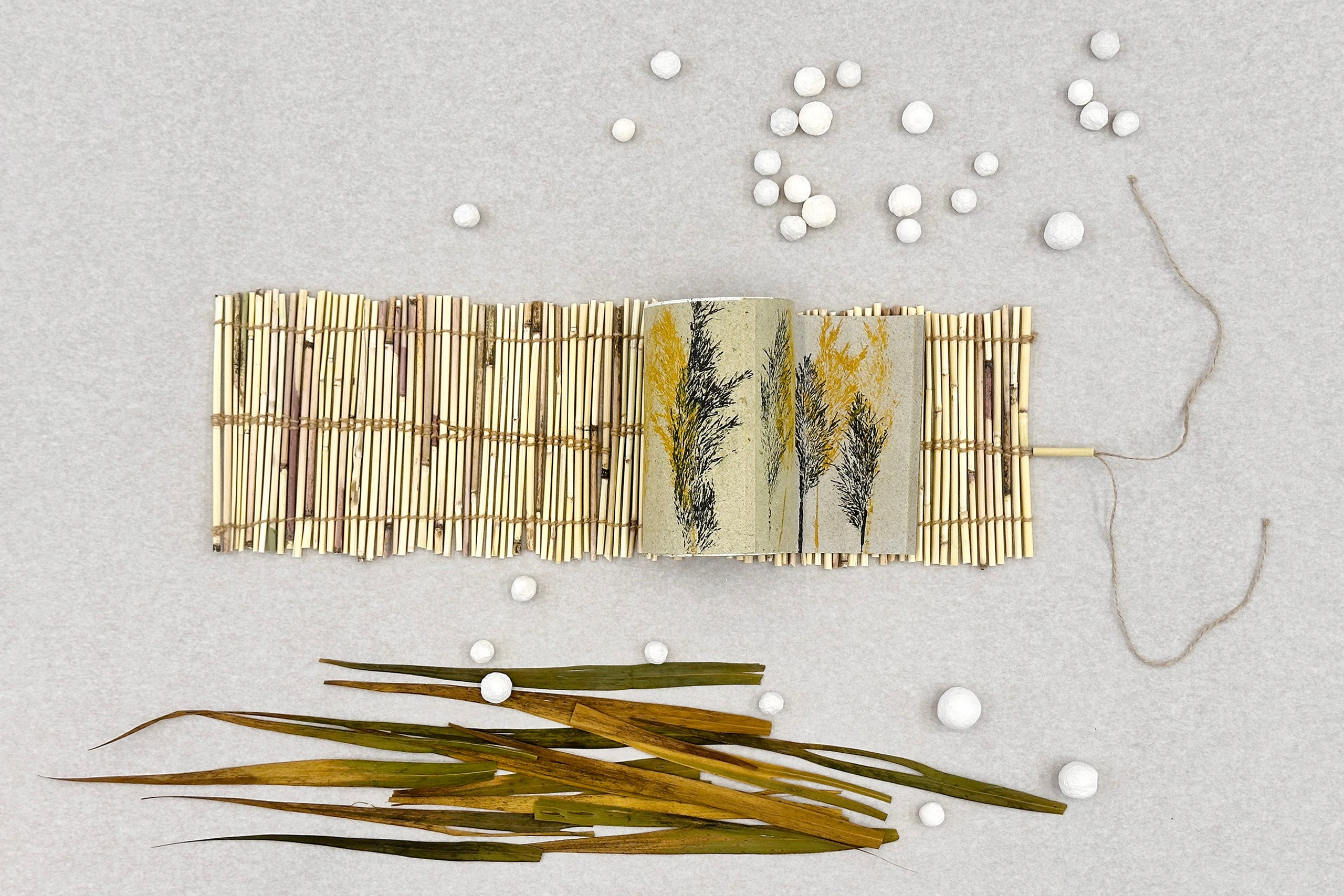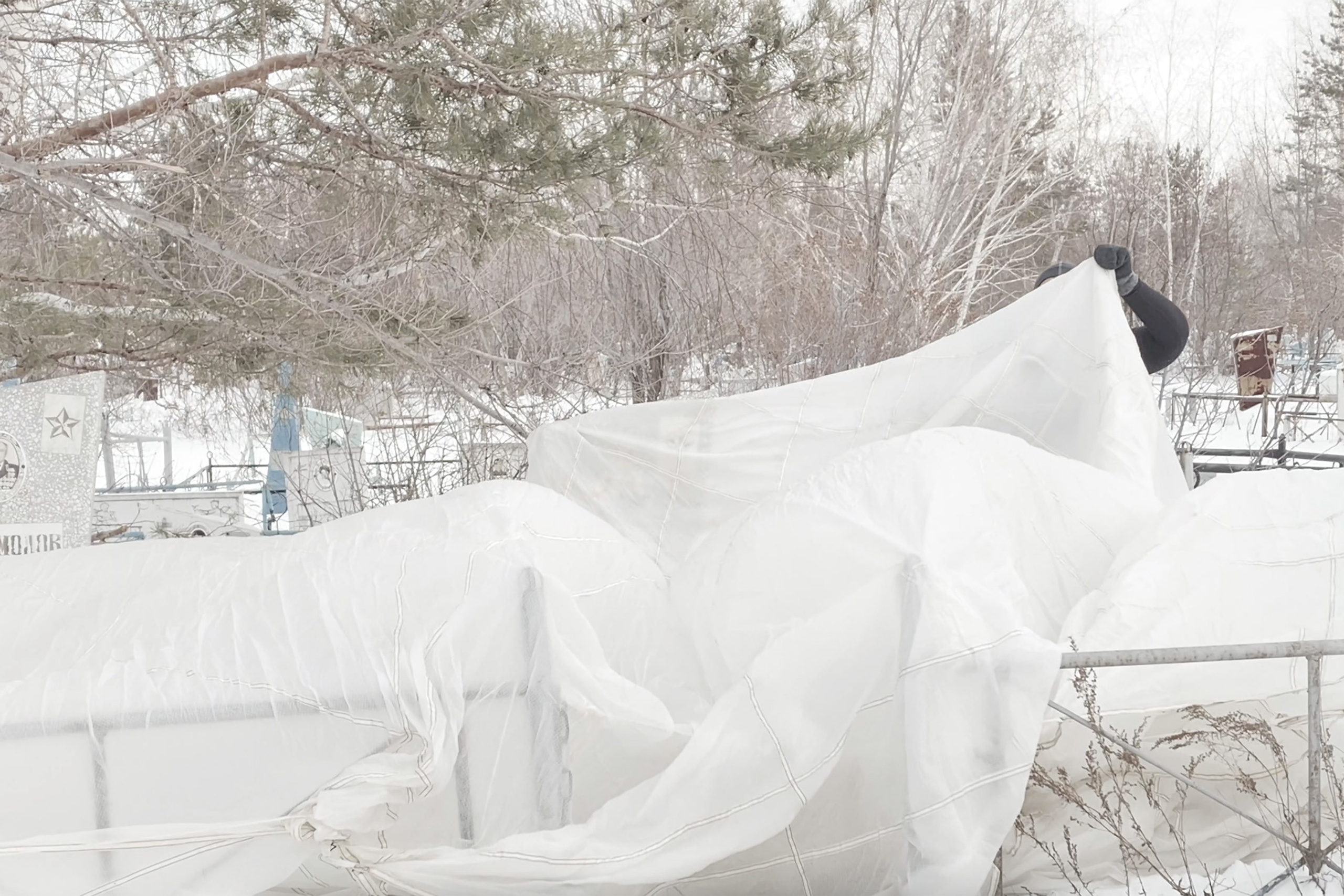DECISION ALTITUDE (2022)
Installation, parachute, video (4:25)
The life of any military town sets its own logic of symbolic appropriation of space. Anastasia Bogomolova was born and grew up in such a town. One of the most vivid memories of the artist’s childhood is spending time in the interiors of airplanes, where it was so cozy to hang out with friends. Children’s perception of things does not include awareness of the functional purpose of military equipment, the action of which is always deferred, and is not able to model scenarios for its use. Playful domestication of army realities also penetrates the world of memories from the family archive: little Anastasia dressed in the uniform of a 19th-century hussar looks at us from a photograph.
Family celebrations and anniversaries randomly associated with military and aviation holidays become elements of family pride: her mother was born on Fatherland Defender’s Day, her older sister’s birthday is on the eve of Aviation Day, Anastasia herself was born on Frontier Guard Day. Nostalgic for the seemingly forever lost belonging and the sense of community that held together the lives of the inhabitants of the military town, the artist’s mother constantly watches a TV channel dedicated to films and series about the armed forces.
The hardship of 2022 has pressed together two contexts: the private history of the family and the history of the country, causing an irresistible desire to escape. A moment of weakness — the artist’s father confesses that he had always been afraid to parachute jump — becomes the waypoint for this desire. Behind the professional vocation of a lieutenant colonel of military transport aviation hides a story of overcoming fear and emotional vulnerability as one of the rare moments of genuine sincerity.
Detachment (jumping out of an aircraft) in Bogomolova’s performance is interpreted as a story of distancing oneself from the family’s military past. It is impossible alone, only with the rescuing figure of a partner. In tandem. In an atmosphere of support and care. In the rare gaps of admitting one’s own powerlessness and defeat, of asking for help, and being willing to accept it. Such a utopian goal turns out to be potentially unattainable: getting rid of a difficult heritage, jumping out of a plane without the burden of responsibility is impossible, even if you land thousands of kilometers away, in Tbilisi, Yerevan, or Istanbul. The painful economy of genealogy seems to hold you hostage.
Anastasia Bogomolova realizes her right to take a step into the unknown on the way to healing liberation, to a state of free fall. The myth of the possibility of a way out never ends with the landing; in its structure, it is more like a tale of eternal return, condemning you to exhausting physical and emotional overload. To overcoming the environment. To the feeling of incessant nausea. To the turbulence punching you in the solar plexus. To the respiratory arrest.
“Today I understood my father, ” is the first phrase Anastasia utters after landing. For the artist, the parachute jump, conceived as a metaphor for the one-sided and painful severance of family ties, unpredictably starts a dialogue with the figure of her dead father. A dialogue that never took place during his lifetime and was probably fundamentally impossible. The effort, initially doomed to surrender and unable to change anything, turns into a moment of understanding and emotional intimacy in the gaps of sensitivity, pain, and fear; an act of gaining inner strength in the epicenter of the fall.
Curator, text: Anton Valkovsky
Video documentation of parachute jumps: Sergey Roznin, Artem Nikitin, Alexander Kulik
Instructor: Alexander Kulik
Video production: Alena Tremazova (editing), Dmitry Lobanov (sound mixing), Ivan Zhdanov (color grading)
The artist is also grateful for the help and support to Evgenia Nikitina, Egana Jabbarly, Taya Sapurina.





